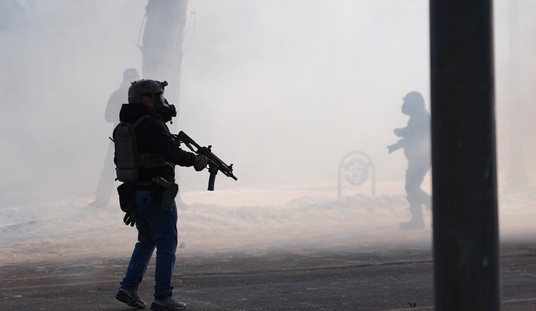This morning’s Gospel reading is Matthew 28:16-20:
The eleven disciples went to Galilee, to the mountain to which Jesus had ordered them. When they saw him, they worshiped, but they doubted. Then Jesus approached and said to them, “All power in heaven and on earth has been given to me. Go, therefore, and make disciples of all nations, baptizing them in the name of the Father, and of the Son, and of the Holy Spirit, teaching them to observe all that I have commanded you. And behold, I am with you always, until the end of the age.”
As Christians, it’s easy to sometimes look around at the state of the world and wonder just when Jesus plans to return. That may be especially true at the moment, in the midst of a pandemic and increasing tensions at home and abroad, along with the economic collapse in motion at the moment. After two thousand years, it can be difficult to see what comes next — even while marveling at all of our advances and knowing just how much work remains in evangelizing the Good News.
When this question comes up from a particular event or sense of despair, we sometimes exclaim out of exasperation, humor, or a mixture of both, “Jesus, take the wheel!” It’s an admission of our own lack of omnipotence and omniscience, but it still has that undercurrent of nagging doubt. When, precisely, will Jesus “take the wheel” for good and inarguably establish His kingdom?
Certainly the apostles must have wondered about this, even after the Ascension, which we celebrate this Sunday. Today’s first Gospel reading brings us the Great Commission from the end of Matthew’s testimony, in which the risen Christ makes clear that their work had only just begun. The new church’s mission would take it to the ends of the earth, starting with just the eleven at hand, to bring the Word of God to all people and convert them to repentance for sins.
Even that Great Commission, though, suggested an endpoint. “I am with you always,” Jesus says as He ascended, “until the end of the age.” The apostles themselves wondered about the length of that period, even after the Resurrection. In our first reading today from the beginning of the Acts of the Apostles, Luke notes that the then-disciples asked the risen Christ a curious question just before His Ascension:
When they had gathered together they asked him, “Lord, are you at this time going to restore the kingdom to Israel?” He answered them, “It is not for you to know the times or seasons that the Father has established by his own authority. But you will receive power when the Holy Spirit comes upon you, and you will be my witnesses in Jerusalem, throughout Judea and Samaria, and to the ends of the earth.” When he had said this, as they were looking on, he was lifted up, and a cloud took him from their sight. While they were looking intently at the sky as he was going, suddenly two men dressed in white garments stood beside them. They said, “Men of Galilee, why are you standing there looking at the sky? This Jesus who has been taken up from you into heaven will return in the same way as you have seen him going into heaven.”
This question seems quite curious in the context of everything that had already transpired. Jesus made it clear during His ministry that He would not fulfill the popular, power-hungry model of a messiah that the Judeans wanted. He did not pull together armies of soldiers to fight the Romans or the temple authorities; indeed, Jesus barely mentions the Romans at all in the gospels that have come to us except to dismiss them as irrelevant. His exhortation to “render unto Caesar what is Caesar’s, render unto Me what is Mine” was as political as Jesus got, and then only to dismiss politics as a non-sequitur to the Lord’s Word of love, repentance, and forgiveness.
By the time the soon-to-be apostles ask this question, Jesus has already submitted to a humiliating death on the cross rather than rescue Himself to provoke a political revolution. His return from death and further discussion of preparing a place for His followers in the house of God should have already alerted the disciples that the old way of looking at the messiah simply did not apply.
And yet, this shows how difficult it is to let go of the only context we truly know — this material world and our fallen lives within it. Our exhortations for Jesus to “take the wheel” at times falls into the same trap. We want a messiah on our own terms to rule this world according to our own desires, rather than to form and conform ourselves to His will so that we can prepare ourselves to live in His love in the next world. And why wouldn’t we? That’s the only context we truly know.
This, however, is why faith is more important than knowledge or power. Jesus sent His apostles out not to conquer the world through power, but to convert the world through love. To do that, and to face the horrific consequences that often brought to the apostles and their successors, required faith in Christ above all else. They accepted that this world would clock along as it always had, at least in their brief time within it, and that the true Kingdom would await us in the next. To the extent that they could improve this world, it was only through Christ and their own work to evangelize on His behalf by converting more and more people to conform themselves to His will and act accordingly.
They may have well sighed many times with sentiments similar to “Jesus, take the wheel,” but they understood that it was up to us in this world to take the wheel on behalf of Christ. We should not look for the kingdom in this life, but “take the wheel” ourselves to help as many of our brothers and sisters prepare for the kingdom in the next life. That was Christ’s final call to all of us, as He prepared for our arrival at some point — when the cares of this world will fall away for good anyway.
The front page image is a detail from “The Ascension of Christ,” a 16th-century painting attributed to Dosso Dossi. Via Wikimedia Commons.
“Sunday Reflection” is a regular feature, looking at the specific readings used in today’s Mass in Catholic parishes around the world. The reflection represents only my own point of view, intended to help prepare myself for the Lord’s day and perhaps spark a meaningful discussion. Previous Sunday Reflections from the main page can be found here. For previous Green Room entries, click here.








Join the conversation as a VIP Member